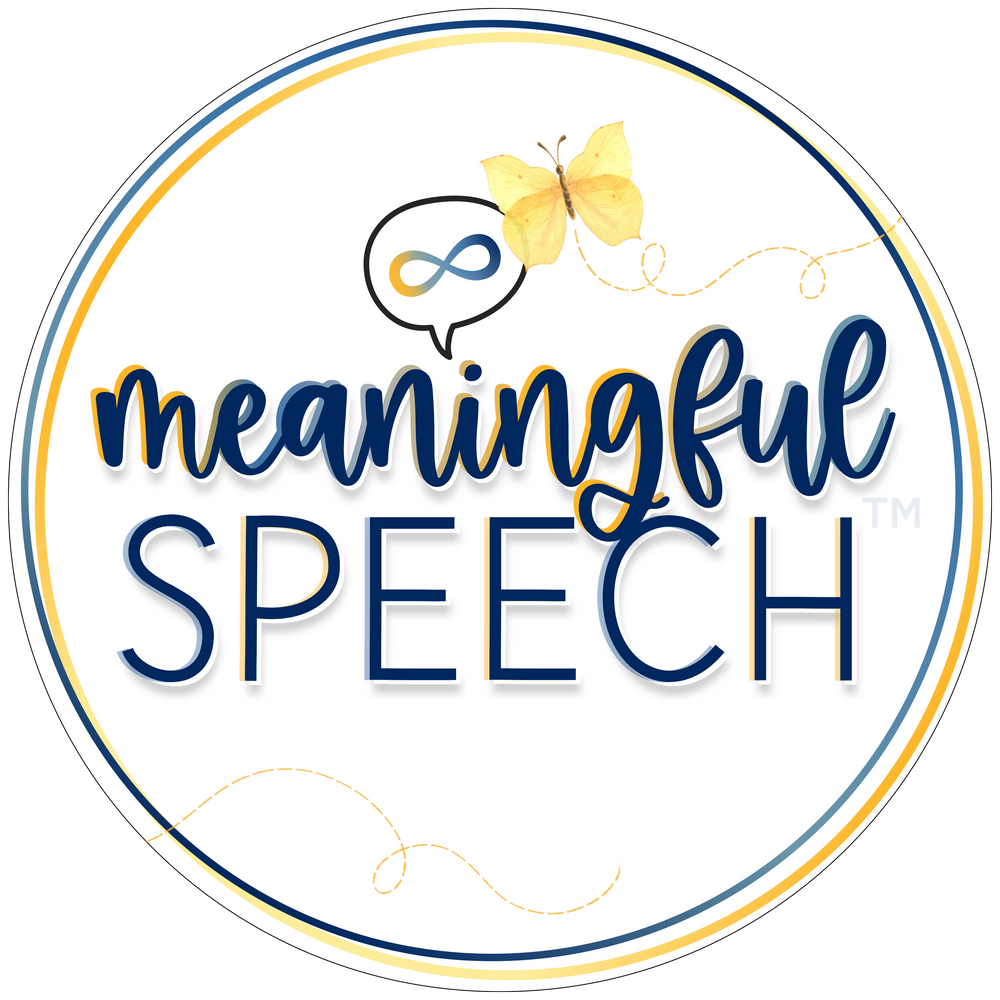Will my gestalt language processor ever be conversational?
Apr 30, 2025
When a child doesn’t have functional language many speech language therapists focus on wants and needs. There is a lot of focus on phrases like “Can I have ____?” and “I want ____.” We often hear from parents that say ”my child can answer questions and tell me what they need but there is no back and forth conversation.” Parents then think kids need to be in social groups to learn turn taking and conversational skills.
Sadly, these groups are not where most of our kids are going to begin self-generating language and using flexible language. They may learn some gestalts/scripts for use in conversation, but in most cases it won’t be flexible language.
Flexible Language
What we need to do as parents and professionals is switch our focus. Instead of narrowly focusing on wants and needs or what I often call “survival” language, we should focus on VARIETY in low stress, natural and child led situations. A child that has a variety of gestalts (scripts/delayed echolalia) in all of the categories/communicative functions will be better able to mix and match language and eventually generate flexible language. Flexible language is needed to have a back and forth conversation that flows and is a true exchange of stories, ideas, information, thoughts and dreams.
What do I look at to support them?
We want our kids to tell us more than what they want to eat and that they need to go to the bathroom. So let’s reframe the narrative. If a child comes in with little to no language think about how you can choose a few different areas to target naturally such as (not an exhaustive list, but a start!)…
- Shared Joy
- Transitions
- Help
- Commenting
- Protests
- Self-Advocacy
- Initiation
- Reoccurance
- New Situations
What questions can I ask myself?
- Am I repeating and pushing language that encourages limited variety such as only making food or play choices or expressing wants and needs?
- Am I expecting them to repeat my words or am I modeling language without expectation?
- Am I targeting varied language models and focusing on a variety of language across the categories?
- Am I using declarative language (commenting, narrating) over questioning and prompting?
- Am I asking things to check comprehension or presuming competence?
Presuming Potential
We can never presume to know a child’s full potential. Many of our kids will be conversational and communicate with flexible language. It is never too early or too late to change your approach. The change starts with US and not them. It’s about how we are modeling language and creating safety and trust in a connected relationship with them.
Hint: Most kids don’t feel safe or trust you if you’re always transactional with them expecting an answer or demanding they say something. Talk to them naturally without expecting them to respond. Enjoy being with them and learning out their interests and who they are.
Additional Resources
- There are many free podcasts, webinars and articles to get you started. A comprehensive list of resources can also be found on our website. We now have a FREE masterclass on echolalia and child-led therapy and a Beginner's Guide to AAC & Gestalt Language Processing that are perfect for anyone starting their learning journey or on the fence about purchasing our courses!
- Meaningful Speech Course or AAC + Gestalt Language Processing Course: Deepen your understanding of gestalt language processing and learn strategies to support gestalt language development with one of our self-paced courses or webinars.
- SLP Registry: Find speech-language pathologists experienced in supporting gestalt language processors and child-led therapy.
- Free Webinars and Articles: Access free information to further your own knowledge or get free resources you can share with others.
